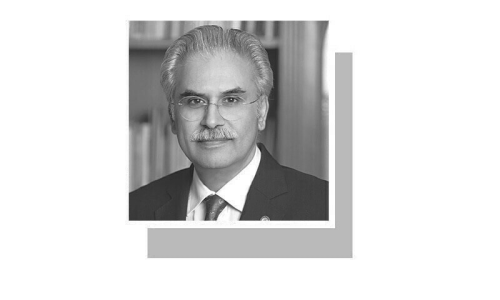WASHINGTON: After over a week-long hiatus, US President Donald Trump has once again offered to mediate in the Kashmir dispute between Pakistan and India, only to be rejected by the Indian government that insisted it would not accept any third-party mediation on its disputes with Pakistan.
Mr Trump said he would “certainly intervene” to resolve this 70-year-old dispute if asked to do so when asked at a White House press talk on Thursday how he wanted to resolve the Kashmir dispute.
“If I can ... if they wanted me to, I would certainly intervene,” said the US president.
When reminded of his July 22 offer to mediate between the two countries on Kashmir, he asked: “Have they accepted the offer or not?” He then said that he was there “if they wanted somebody to intervene or to help them”.
Like in his previous statement on Kashmir, President Trump reiterated that he was not making this offer on his own.
US president says he has good chemistry with Imran, hoping this will help resolve the Afghan issue
“I spoke with Pakistan about that, and I spoke, frankly, to India about it,” he added.
Further justifying the need for a third-party mediation to resolve an apparently unending dispute, Mr Trump said: “But that’s been going on, that battle, for a long time.”
Last month, the US president revealed at a White House news conference that Indian Prime Minister Narendra Modi had recently asked him if he would like to be a mediator or arbitrator on Kashmir.
Prime Minister Imran Khan, who also had addressed the joint news conference, immediately welcomed his remarks, saying: “Right now, you would have the prayers of over a billion people if you can mediate (on Kashmir).”
On Wednesday, a senior State Department official told journalists in Washington that Mr Trump’s offer to help resolve the Kashmir dispute should be seen against the backdrop of the US desire to help improve relations between India and Pakistan.
In his fresh offer, Mr Trump said it was “really up to Prime Minister Modi” and Mr Khan to decide if they needed help, but he had good relations with both leaders.
“I met Prime Minister Khan, I got along great with [the premier]. I think they are fantastic people — Khan and Modi — I mean, I would imagine they could get along very well,” he said. But if they felt the need for external support, he was there to help, he added.
India, however, again rejected President Trump’s offer, reiterating that any discussion on the dispute would be bilateral.
India’s External Affairs Minister S. Jaishankar told US Secretary of State Mike Pompeo on the sidelines of an Asian security forum in Bangkok on Friday that any discussion on Kashmir would be between India and Pakistan only.
“Have conveyed to American counterpart Secretary Pompeo this morning in clear terms that any discussion on Kashmir, if at all warranted, will only be with Pakistan and only bilaterally,” Mr Jaishankar tweeted.
Briefing the media on PM Khan’s visit to Washington last week, a US State Department official on Wednesday reiterated the US offer to help India and Pakistan resolve the 70-year-old dispute if asked by both.
“We recognise that Kashmir has been a bilateral issue but there are opportunities as Pakistan takes steps that build confidence in its own efforts to counter terrorism [and] ultimately towards a constructive dialogue. We stand ready to assist if asked by the parties to do so,” the senior State Department official added.
President Trump declared in his July 22 news conference that it was the Indian prime minister who had asked him to mediate. “I was with Prime Minister Modi two weeks ago and we talked about this subject [Kashmir]. And he, actually, said, would you like to be a mediator or arbitrator? I said, where? [Modi said] Kashmir,” Mr Trump said.
The statement caused a political storm in India where opposition parties called Mr Modi’s reported request to the US president an act of treason and asked him to explain why he had made such a request. But the Indian government denied ever asking Mr Trump to mediate on Kashmir. The government claimed India retained its traditional position that it would not accept any third-party mediation on its disputes with Pakistan.
However, the Indian statement was rejected a couple of days later by President Trump’s Chief Economic Adviser Larry Kudlow. He said his boss had not “made up” the claim that the Indian PM had asked him to mediate on Kashmir. “The president does not make anything up. That’s a very rude question in my opinion,” he told a reporter at a White House briefing on July 24.
Published in Dawn, August 3rd, 2019













































